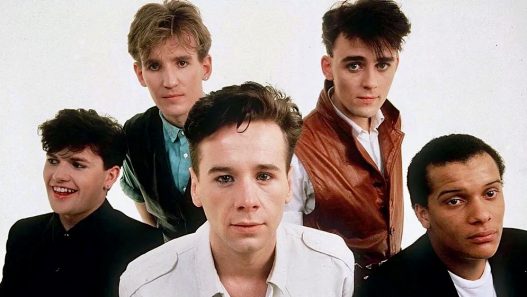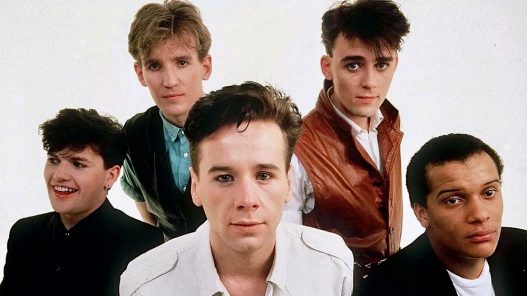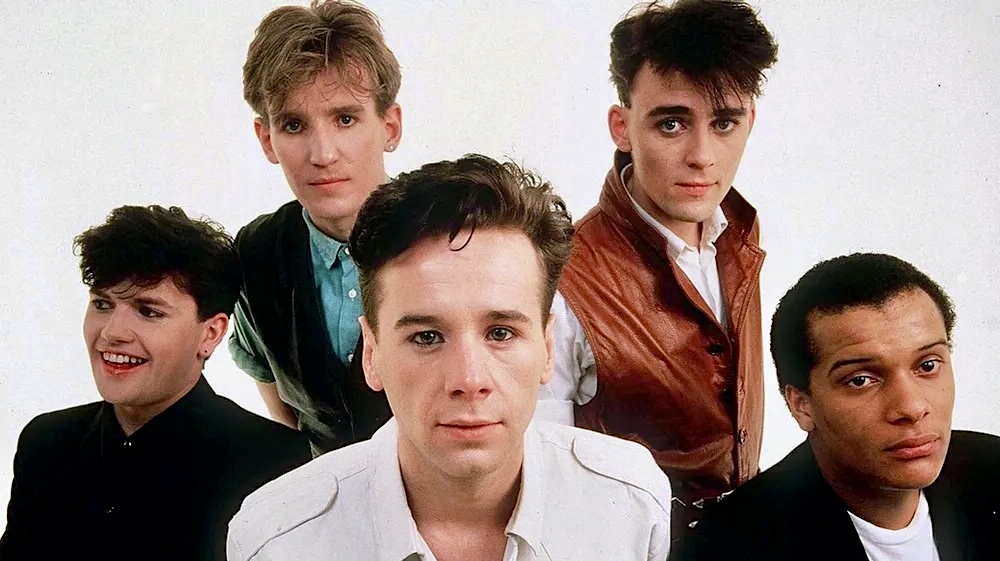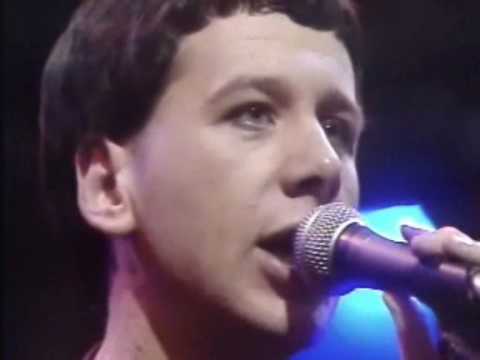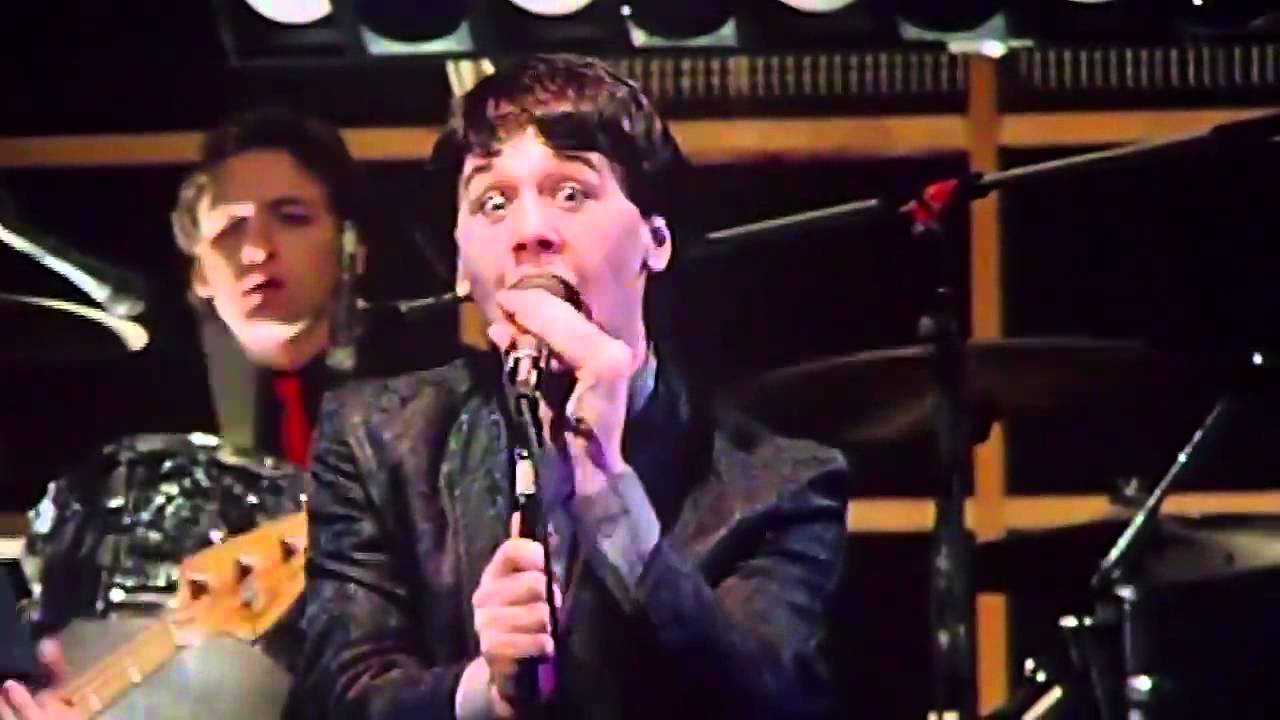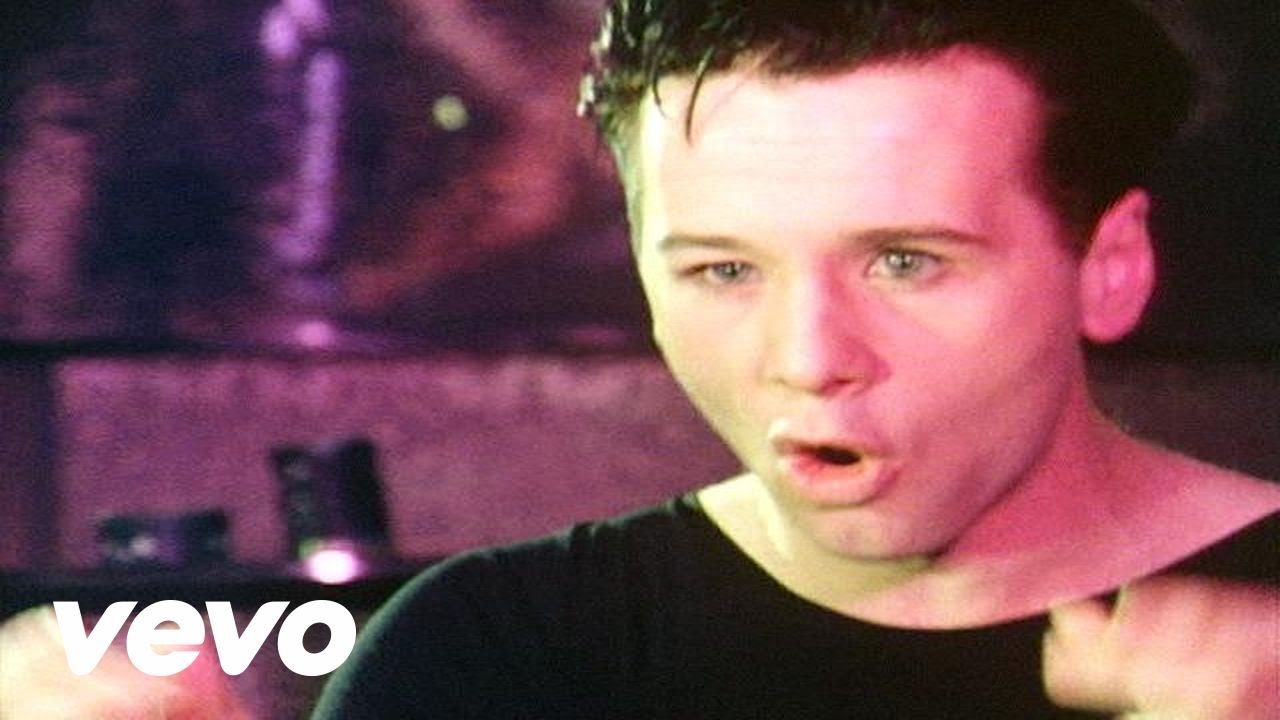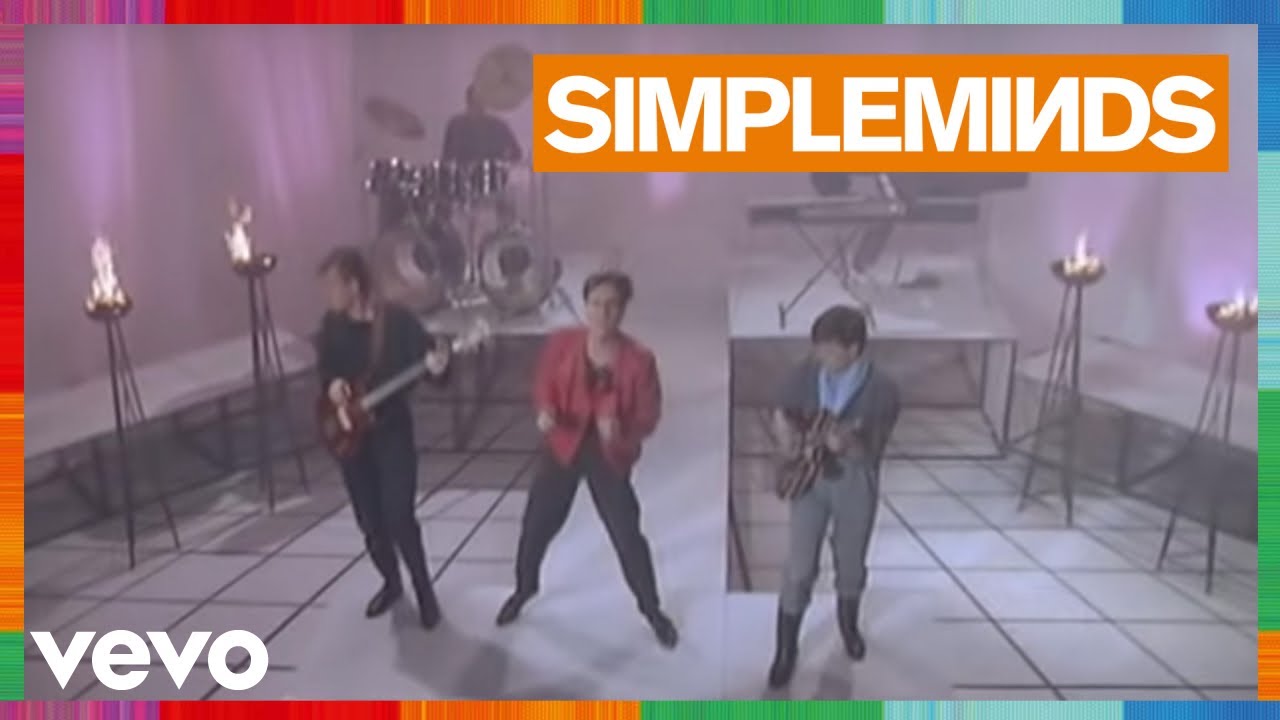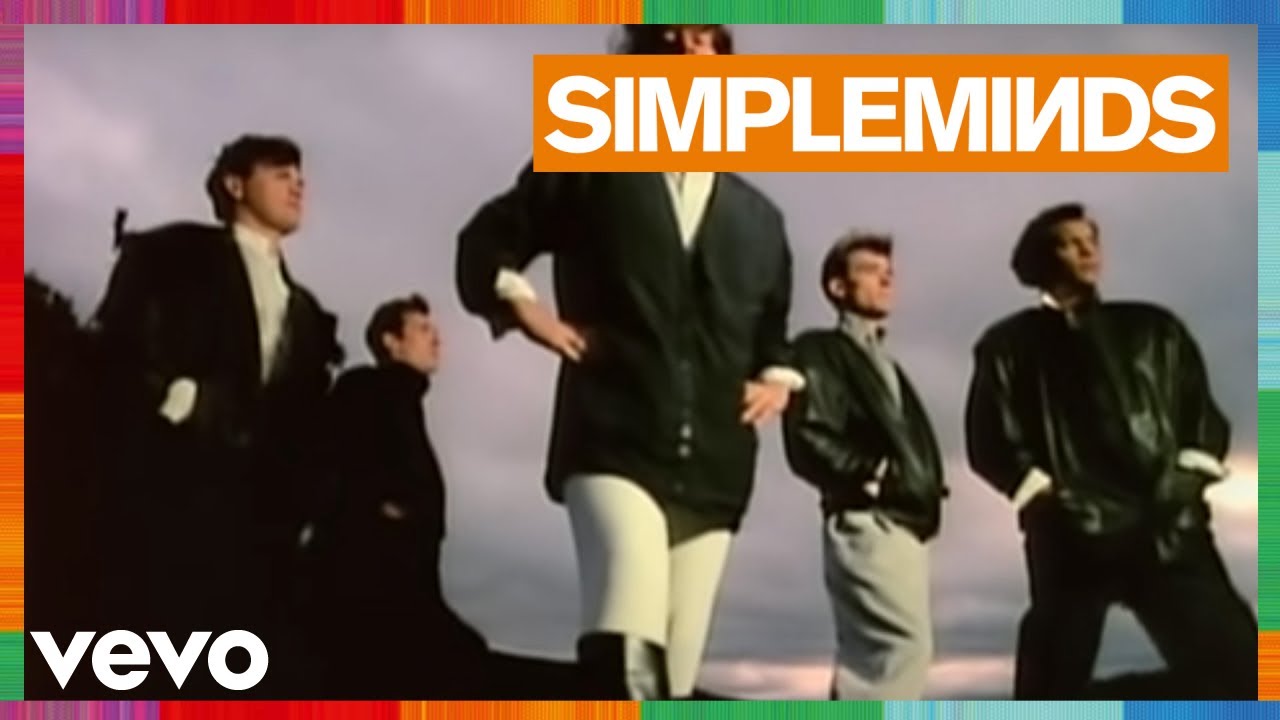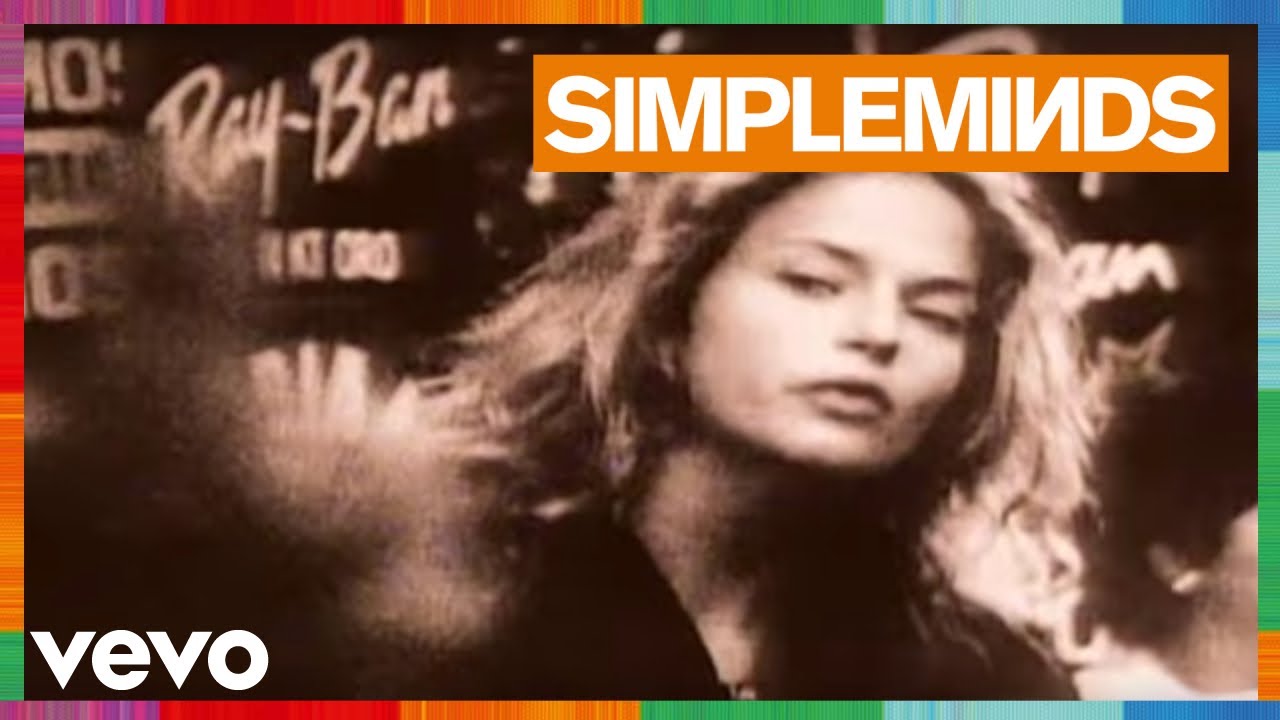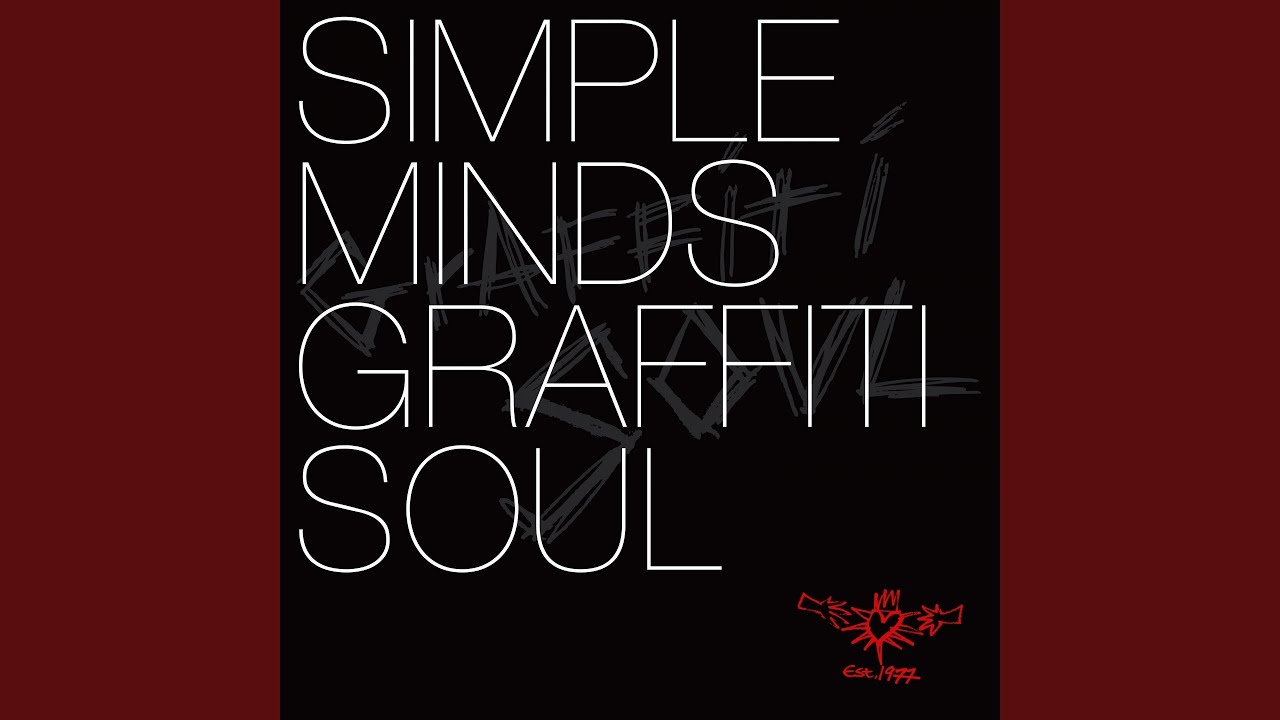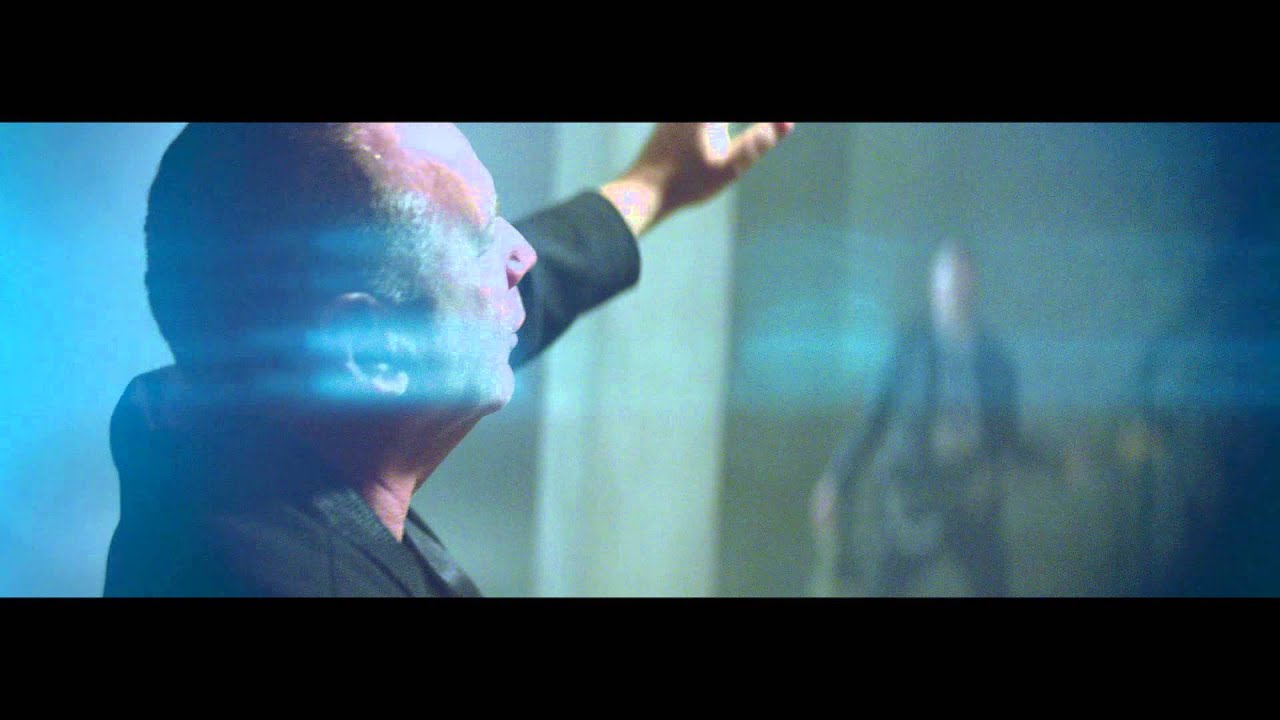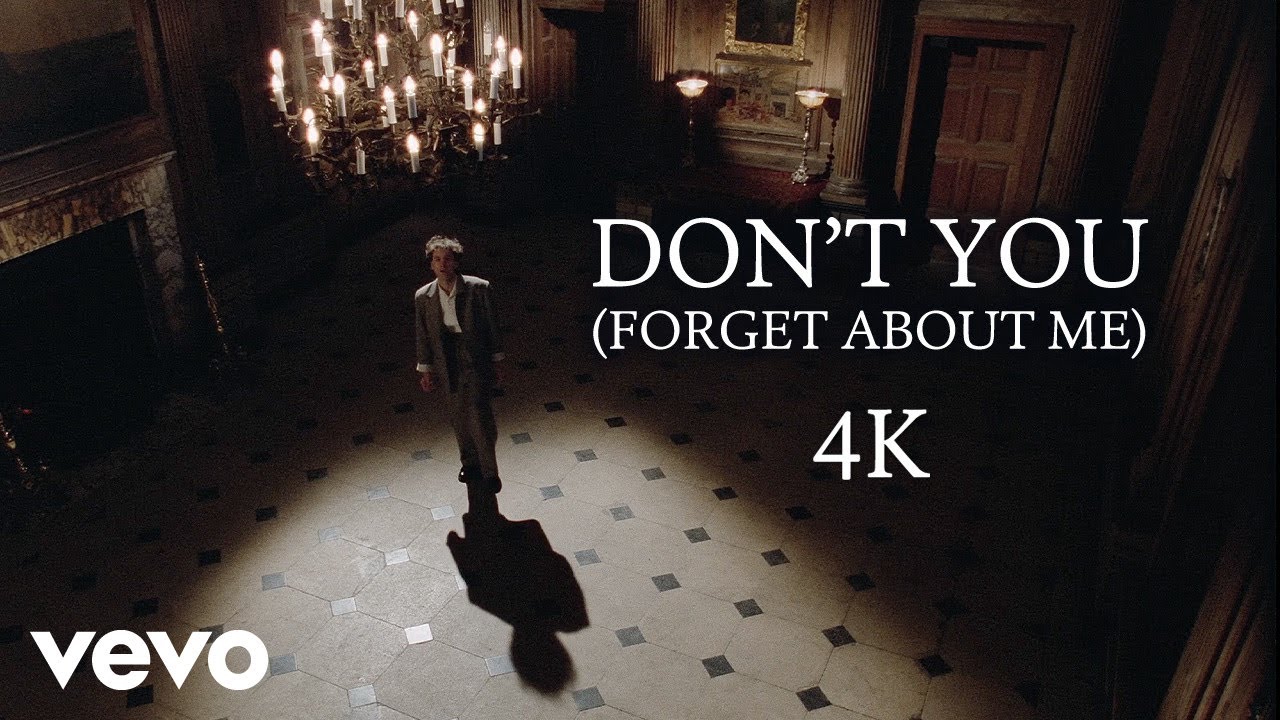Spawned in a Glasgow ghetto in 1977, Simple Minds nabbed their name from a line in Bowie’s The Jean Genie while shapeshifting from punk outrage (original unsubtle moniker: Johnny And The Self-Abusers) into the most successful Scottish band of the 1980s, having sold more than 60 million records in the process.
From working-class weirdos to pomp rock stadium fillers, Simple Minds seemed to be rushing headlong into the future: Caledonian cultural omnivores slavishly devouring artfully minded literature while revelling in the thrill of it all, the real cacophony, at first-hand.
It’s easy to forget just how big the band once was, too. Alongside U-know-who, in the UK the stylemongering Scottish combo scored 14 top twelve albums and countless hit singles, defining the production excesses of the 1980s along the way.
Looking back, the hyper-kinetic speed of change was astonishing, as Simple Minds released five albums in three years, issuing their debut when Kerr was 19, and their shimmering new pop masterpiece, New Gold Dream (81/82/83/84), when he was barely 23.
“I don’t know how we, and others, did it,” stretchy frontman Jim Kerr says of the famously fertile nascent period. “It shows you the energy we must have had. Where did we find the time? Because we were touring as well as recording an album every 10 months.”
Indeed, for the first half of the eighties, the prolific popsters were at the vanguard of reverb-heavy synth-based obscure alternatives. They never completely lost their futuristic and arty leanings but once Waterfront made them more radio-friendly rockers their sound became bigger, less experimental and more streamlined, turning people on and off in equal measure.
Though they underwent frequent lineup changes the troupe was always anchored by Kerr and his lifelong double-act partner Charlie Burchill, the only two original members remaining today. The contributions of bassist Derek Forbes and keyboardist Mick MacNeil were absolutely vital in the first few years.
Following their compelling 2023 documentary Everything is Possible (which — get me — I caught at the XXII edition of the Barcelona In-Edit Film Festival, as you do), Jim and Charlie have published their first book Our Secrets Are The Same: Friendship & Fame At The Heart Of Simple Minds, expertly guided by the band’s biographer Graeme Thomson.
Though they are best known to casual observers for soundtracking a certain film theme, what we are focusing on today is a Perfect 10 of the best Simple Minds long-players, inspired by the ‘rock’ theme of the UK’s National Album Day in 2025.
Before we get down and delectable, it would be amiss to not give a few cursory lines to the group’s debut Life In A Day, which showed promise, particularly in the excellent title track and the kooky Chelsea Girl, both decent singles that benefit from plangent, angular jabs. Alas, the whole album was often criticised for John Leckie’s (over)production, which was a shame as it flattened some of the potentially interesting tunes and sounds too much of a Sparks meets Roxy crib to be anyone’s fave Simple Minds album.
Herr Kerr’s Bowie fronting Magazine affectations can wear thin, too, though by the time they released the follow-up a mere seven months later, an astonishing metamorphosis was under way.
Real To Real Cacophony (1979)
Though the art-rocking Caledonians wear their electronic influences like an overcoat on this sophomore set, Real To Real Cacophony was the first step towards Simple Minds finding their sound and charting their own path.
An atomistic and polarising piece of work, it’s possibly a bit too self-consciously avant garde for some. But if you were partial to the ambient experimentation of the Bowie/Eno ‘Berlin’ albums then this unconventional handsome opus was certainly on a par with contemporaneous offerings from PiL, Devo and Joy Division, if not Low and “Heroes” themselves.
The art rock cabal of the late 70s became a very fertile if recherché scene to be part of, so much so that during recording at Rockfield the Minds were co-opted into providing impromptu backing vocals on a Soldier song, Play It Safe, for Arista labelmate Iggy Pop, who had a dairy-loving Dame in tow, as Kerr recalls:
“What’s the chance of them knocking on your door and saying, ‘We need a few extra voices here’? Can you believe no one had a camera, but there was plenty of cans of beer. And at the end of the night everyone had the munchies. I remember Bowie eating a lot of cheese and thinking I didn’t think David Bowie would be a cheese-eating guy. I don’t know why I thought that. But he was enjoying himself.”
This was the colourful, expansionist era when everything is possible and the band were travelling around the continent at “30 frames a second”, channelling edgy Euro tumult as they witnessed Berlin in all its bleak magnificence and passed through Paris as it was assailed by explosives.
The artistic progression from Life to Real is remarkable and even more impressive considering it was only seven months between albums. There is much to take in, too, with the title track opener sporting a chilling Kraftwerkian off-kilter arrangement reminiscent of Radio-Activity. Indeed, much of this early aesthetic revelled in that menacing and mysterious vibe: vaguely danceable in a 70s reluctant Emo kind of way yet acting as the band’s blueprint with pulsing all-pervading Forbes basslines, sinister synths and spacey beeps and bloops.
Calling Your Name is a scattershot staccato rocker, while Changeling, a bristling dance track and the LP’s only single, shines with fabulously fuzzed-out synths, particularly when endowed with beguiling Blondie quoting lines like “Down in the club, Beau bells can ring. Look good in blue. Help me to sing.”
Things take on an even edgier turn as a sumptuous sound cacophony permeates the Minds’ first blistering bonafide classic, Premonition. With its visceral bass and Kerr’s bombastic chorus it’s the set’s best predicator of two band’s future. Yes, it basically invented U2, too.
On a personal footnote, a decade after its release I became so entranced by the short instrumental Film Theme I’d gleefully use it to fill up space at the end of so many home taping compilations that friend Judi admonished me at the time with, “You’ve ruined that one for me now. I can never listen to it ever again.” Hopefully she doesn’t feel the same about the rest of the album.
Empires And Dance (1980)
“This is one of the coldest records in the world. I’ve always liked records which are completely misinformed and displaced. They tried to become really European, this dark, unemotive, industrial band, but in demographic terms they were really confused, and that can produce brilliant records. I don’t think the British look towards Europe in the rose-tinted way Americans do. We see it in Basil Fawlty-ish terms.
“I remember reading Jim Kerr going on about the Baader-Meinhof gang, and the Red Brigade, and trying to make sense of all these conflicting ideologies. Happy Mondays’ 24 Hour Party People and U2’s Achtung Baby really ripped off Simple Minds, but no one wants to admit that. Yes, we did plagiarise the sleeve art for The Holy Bible. A little nod.”
So said James Dean Bradfield in a 1995 issue of Melody maker. The Manic Street Preachers frontman has also been known to give copies of Simple Minds’ third album out as gifts, a tacit acknowledgment that the authoritarian Empires And Dance played a formative role on the Manics’ 2014 set Futurology, both records inspired by Berlin, Kraftwerk, Moored and each band’s respective experiences touring Europe.
Some might say Simple Minds never again reached such a zenith (though a certain twin set came close a year later). Whether true or not, there are some all timers here. The largely electronic opener is rousing, agitating, pulsating and utterly hypnotic, and is typical of the treasure trove of Eurocentric adventures and experimental invention that led Bradfield to call early Minds “crystalline gods… my church”.
Such a startling beginning serves notice that something quite different is occurring this time around, almost like recording the aftershocks of Bowie’s Low, particularly on the slightly uneven second side. Side one, though, is nigh on perfect: This Fear Of Gods is one the most underrated cuts in their catalogue. It’s more of a mesmeric groove than a fully developed song structure, while the menacing but buoyant This Fear of Gods and the unsettling, oppressive Joy Division-influenced Today I Died Again and the laconic Celebrate are further Forbes masterclasses in propulsive futuristic bass dominance, the popsmarts of the latter seemingly informing Soft Cell’s rework of the following year’s Tainted Love.
Incessant touring had given Forbes, Burchill and MacNeil a fearsome musical chemistry, and here, Herr Kerr floats around the soundscape like a sergeant major in space, jabbing his obtuse impressionist lyrics while John Leckie’s production sounds spot on too. The keyboard and guitar work is also noteworthy, and the band sustains the sense of exploration and adventure right up to Constantinople Line by which point after they lose their focus a bit, with Twist/Run/Repulsion sounding like an artful experiment that doesn’t quite work.
After this they began gradually moving to more commercial ventuers but with Empires And Dance Simple Minds had truly arrived.
Sons And Fascination/Sister Feelings Call (1981)
It’s easy to get confused by this pretty pair because they’re usually referenced together to the point of them being considered a double album. But they’re separate, right?
Well, SAF and SFC were released by the band’s new label Virgin as one package before being made available as separate sets simultaneously as the band recorded all 79 minutes together in the same Buckinghamshire sessions — helmed by Gong‘s Steve Hillage — generally expecting the contents to be included on their fourth album. Either way, it’s a total of 15 Teutonic tracks with one being a dub of 70 Cities As Love Brings The Fall from Sons And Fascination.
Sporting six original songs, the first trio of tracks on Sister Feelings Call match or exceed the material on the parent disc and is arguably the mini-album (or EP, in renewed parlance) that taught The Edge how to use the delay pedal. It opens and closes with two of the most sinuous, superlative instrumentals ever recorded, with Theme For Great Cities in particular so utterlytranscending all contemporary genre boundaries that even a mash-up with Queen’s Bohemian Rhapsody 20 years later couldn’t ruin.
The two “-ful” songs (Careful and Wonderful) are both coruscating and claustrophobic. League Of Nations is a gently percolating grower while the other towering deep cut is the malevolently trippy Thirty Frames A Second. And despite The American being ‘relegated’ to the bonus platter was the set’s first 45 and is an exceptionally solid single.
The sensually melancholic Sons And Fascination also sports two further 45s in the shape of Love Song and Sweat In Bullet, both quintessential Simple Minds singles.
The Scots didn’t use synthesizers quite like the other acts they were often compared (Japan, Ultravox, the usual suspects), while compositionally, the rhythm section dominated with songs being built up in layers of melody over repetitive trance grooves. Drums were rigid but Derek Forbes’ nimble basslines were anything but, and he handled fretted or fretless with equal aplomb. His work on the epic and spacey In Trance As Mission and the propulsive, insistent Love Song are as steely and sturdy four decades later, and were almost certainly the foundation of all early Simple Minds recordings.
A lot of the music here bounces along in a fashion they’d never repeat with their more serious pomp rock releases. The golden Neverland would be just around the corner.
New Gold Dream (81/82/83/84) (1982)
Some of my favourite albums capture an act where they’re charting new territory but have yet to fully set up shop, thus there marking a unique transitional period in their history. Think Revolver, Station To Station, and OK Computer.
New Gold Dream, too, is also one hell of an inbetweener moment and is considerably more sophisticated than all of its predecessors put together, but it doesn’t go full guldering bombast like many Minds albums that followed. There are a few hints to the future, but mainly the band seemed to be applying a more accessible glisten to previous aural soundscapes.
Simple Minds’ futurist fusion of pop, funk and symbolism pointed to an ethereal journey through an emotional and intellectual hinterland, and an overall stylish sophistication influenced by arguably the three most revered art rock acts of the early 80s — David Bowie, Roxy Music and Japan. And even though this album is something of a fashion statement, it holds its worth with admirable aplomb.
It has its rousing moments but this one hits differently. Charlie’s guitars provide subtle spectral textures behind the more drum and bass-propelled songs, often bolstered with a Moog. And something about the muted but still weighty sound of the drums add to the uniqueness of the project. Moreover, it’s unique in boasting not one, not two but three drummers in the shape of Kenny Hyslop, Mike Ogletree and session man Mel Gaynor, who was soon made an official member and Simple Minds’ fourth sticksmith in less than a year.
For the next change in personnel, a barely out of his teens Peter Walsh, fresh from engineering Stevie Wonder and the acclaimed electronica album Penthouse And Pavement for new labelmates Heaven 17, was hired as producer. So perhaps it’s not a surprise that some of the synth and basslines evoke more more New Romantic than New Wave sonics and I’d put money on it that Nick Rhodes and any art rocker worth his salt must have had a listen.
Even though it boasts three of the Minds’ finest and famous 45s (including the spellbinding scene-setter Someone Somewhere In Summertime), this is undoubtedly Mick MacNeil’s finest moment with the band, where the chiming intricate keyboard work is the star; in many cases dancing just above the main groove or weaving in and out for an otherworldly feel.
The visual feasts of Colours Fly And Catherine Wheel and Big Music are both complex in its execution and fascinating tracks taken individually. Things go into overdrive with the bouncy first 45 Promised You A Miracle, with Charlie coruscates with some stunning soloing while Derek turns in another commanding bassline in the verses. The first of a whopping 24 consecutive top 40 hits (till 1998’s Glitterball, which reunited many of NGD’s major players), Miracle and its worthy successor, the uplifting gem that is Glittering Prize, will always hold a special place in the band’s chronology being the first two of the band’s songs I ever heard.
I’m running out of superlatives for the songs on this album, but side one ends with the moody cinematic Somebody Up There Likes You. An ambient tinged instrumental based around the Mahler Chords, it manages to sound dystopian and utopian at the same time. And the inspiration from the sonic soundscape of Roxy Music’s Avalon is definitely there to be heard.
There’s another couple of ethereal dreamlike trips as the LP reaches its apogee with the final pair, Hunter And The Hunted, with its gloriously raga keyboard solo by Herbie Hancock – aye, that Herbie Hancock — and the haunting King Is White And In The Crowd, the type of atmospheric haunter shortly to be totally dispensed with altogether. More’s the pity. Only Dire Straits and 82’s ubiquitous Kids From fame kept this from the top spot.
Sparkle In The Rain (1984)
The floodgates were well and truly open now. Less than 18 months later, album number six arrived in the shape of the epic, euphoric, luminescent Sparkle In The Rain, which ushered in a vibe of rockier, big arena-sized grandiosity Veteran producer Steve Lillywhite helped them deliver just that, resulting in the band’s first chart-topper.
Loud, showy and shimmering from the start, Lillywhite’s influence can especially be heard in Burchill’s bombastic guitars and Gaynor’s machine-gun speed “de-dum, de-dum, de-crash bang wallop” drums that infuse many of the tracks and their obvious steals from Roxy Music, Queen, U2, particularly the Pyjamarama-quoting Speed Your Love To Me, raucous We Will Rock You-aping East At Easter, and the New Year’s Day-derived Up On The Catwalk, all of them demonstrating an increased passion in Kerr’s vocals (not to mention an increased presence in the mix).
Interestingly, first 45 Waterfront was premiered when the Minds opened for U2 in Dublin in 1983. There was always been a good-natured rivalry between fans of both camps, with disagreement over which band influenced the other. For the record, the 14 year-old me decreed my paltry pocket money could stretch to buying three U2 records, including NYD, though as much as I wanted to buy Up On The Catwalk I’m afraid my first Simple Minds purchase was still four years away.
In hiring Lillywhite and suddenly opting for stadium-friendly anthems, it certainly appeared that Simple Minds were emulating U2. However, the Irish quartet returned the compliment the following year when they exalted New Gold Dream as a “point of reference” in the recording of The Unforgettable Fire.
Though I personally preferred Catwalk, I concede with hindsight that Waterfront is The Big One. An instant classic with its driving, irresistible pulse and killer guitar hook, Jim summons all the majesty he can in stepping in and out of the rain, moving on up, stepping on up, living on up, walking on up… to the banks of the River Clyde in Glasgow.
It’s that supreme confidence of the band that makes the first side of the LP eminently listenable. Part Deux is somewhat weaker, but still brings their Velvet Underground obsessions to bear by opening with a truncated rework of Lou Reed’s transgender monologue Street Hassle, a curious cover that’s arguably more interesting in its choice than its execution. The elegiac instrumental Shake Off The Ghosts rounds things out and closes what is still an album I want to like more than I ever did.
Still, commercial breakthrough upheld, the Minds spent much of 1984 opening for the Pretenders — fronted by Jim’s new bride Chrissie Hynde, of course — on the American and Australasian continents. Alas, the audience’s mixed reaction forced a birrova calculated rethink, not to mention the unceremonious expelling of unquestionably one of the greatest bass players of his and my generation in Derek Forbes, just as a certain single was clambering its way to the top.
Once Upon A Time (1985)
It’s the ‘luck’ of the Scottish. Ensconced at the Philadelphia half of Live Aid just weeks after a reluctantly-recorded movie song topped the Billboard Hot 100, Simple Minds — trailed as “one of the biggest international hottest acts around now” — had the unenviable task of being sandwiched between the wondrous Wembley sets of Queen and David Bowie. Geldof’s quiet revenge for Jim apparently declining to appear on Band Aid’s Christmas single perhaps?
That they played the US stage rather than joining the superior British line-up also seemed to point to where the Minds’ heads were at the time. Both the gift horse single and show allowed the band to snag the native production “dream team” of Jimmy Irvine and Bob Cleamountain, with much of what would become Simple Minds’ seventh studio set completed near Woodstock in upstate New York.
Even though they’ve always been masters of the big sound, it’s fair to say no Simple Minds album sounded as American oriented as Once Upon A Time, and hopefully never will again. With the AOR-geared production propelled by gargantuan gospel-inspired vocal lines, thudding drums, and massive keyboard sounds. Not to mention those dreadful rock clichés the power chords and billowing oversized horror shirts.
Despite that singular absence, OUAT did indeed reach the upper echelons of their preferred market (their only US top 10 LP, natch) but became their second No. 1 in the UK, where it remains the band’s biggest selling and longest charting record by far.
Yet shorn of their new wave disco affectations I was fairly ambivalent about the whole affair. The crisp, clear sound was no substitute for atmosphere and texture, and it’s fair to say my college classmate Shaun McComish revealed himself to be a much bigger fan than yours truly: “I really like how they’ve added that black woman. She’s good.”
I remained agnostic, even though the lady in question was the great Robin Clark, wife of Bowie guitarist Carlos Alomar and a veteran of the thin white one’s Young Americans era. Incidentally, Pet Shop Boys would pull a similar trick the following year with the slightly less good Ava Cherry, just months after their Opportunities video employed much of the same ‘special’ effects as All The Things She Said, both clips having been directed by Zbigniew Rybczyński.
Talking of promos, Alive And Kicking, a US #3, remains one of the band’s most recognisable and rousing anthems but it left me wondering if they’d overdone the cheese. As accomplished as new bassist John Giblin was, Derek Forbes’ absence is clearly felt, chiefly because the bass grooves now take a back seat to the more prevalent 80s thud of vocals, guitars and drums. Worse, what was all Giblin’s hard man teetering on the edge of a cliff while doing a Bruce Foxrton impression about?
Still, the giddy Ghostdancing and Springsteen soundalike Oh Jungleland are decent tunes, but not enough for me to feel like attending the Minds’ massive outdoor summer solstice concerts down the road at Milton Keynes Bowl. To be candid, 1985 and 1986 were the only years since my gig-going started that my student budget dictated that abstinence, so we stayed at home and made do with the sound waves wafting intermittently into the garden. As for the sappy Sanctify Yourself, it has to be one of the most overrated Minds singles… until the one about the Irish kid, at least.
Street Fighting Years (1989)
Here comes the hairball, and to quote Star Wars’ Han Solo, “I’ve got a bad feeling about this.” LP No. 8 confirmed the Minds as stadium stars, with all the bloat and bombast that entails. With subject matter including Greenpeace, apartheid, Northern Ireland and Thatcher’s poll tax, Street Fighting Years was intended to be a political synthpop opus overseen by the producer who defined the decade, Trevor Horn, with assistance from his regular cohort Stephen Lipson.
Between them they’d scored big with widescreen productions for Frankie Goes To Hollywood, Propaganda (utilising several former Simple Minds members) and Grace Jones’ Synclavier-led Slave To The Rhythm, which Jim Kerr (and Pet Shop Boys’ Neil Tennant) regards as his fave 45 of the 1980s.
Clearly the band thought they were the right combination, but instead the ABC overlord turned Simple Minds into folkies during often fraught sessions, as Kerr concurs:
“We saw hitching our wagon to Trevor and Stephen’s Fantasia production world as like strapping on rocket engines… (but) Trevor told me, ‘Jim, one of the reasons we wanted to work with you is we’re bored of our thing. So there we were, two camps bored of their sound, looking for the other to help. And it says something they didn’t work together again.”
What on paper could have been brilliant meeting of minds is an occasionally meandering, leaden affair their fussy handlers took an entire year to record, concurrently with production work for Paul McCartney and Rod Stewart, as well as a pair of PSB singles, in the shape of Left To My Own Devices (1988) and It’s Alright (1989).
Though, in a classic case of commerce over art, SFY gave them their only UK No.1 single with the insomnia cure cut Belfast Child, based on a centuries-old traditional folk song that lasts for close to seven sodding minutes. It seemed to take the most po-faced aspects of U2 and amplify them, and wouldn’t be the band’s only chart-topper that both defined them and divided their audience.
Indeed, almost all the tracks are over the five-min mark, with the digital mixing making the band sound sterile or diluted. No wonder drummer Mel Gaynor, bassist John Giblin and keyboardist Mick MacNeil were either sidelined or quit altogether. This would have repercussions later in the band’s career.
I’d seen the band premiere Mandela Day at Nelson’s 70th Birthday Tribute while the future South African president was still island incarcerated. Though if I’m totally honest, I was mainly at the Wembley show for Eurythmics and a certain ex Genesis guy we’ll come to in a minute, but I enjoyed trying to assess whether the hole in Jim’s jean’s might reveal something of his apparently notorious appendage.
With its evocative atmospherics it’s easily the best thing here. It sounds as if, in its bones, the band were attempting to capture the loose jamming quality that their nascent era benefited from.
On the other hand, despite a deadpan cameo from Velvet Underground grump Lou Reed, ecology anthem This Is Your Land is bland, Kick It In is jack-booted bluster, while the most interesting thing you can say about Biko is it closes an act’s 10-track album for a new decade just as it had done for Peter Gabriel’s Steve Lillywhite-produced third album in 1980. I’m a PG admirer from way back, but despite its worthy sentiment it’s not a song I’ve ever warmed to, and Kerr and co render it even more dreary than the original.
Real Life (1991)
After the Horn-fuelled aberration the band felt they needed to enter the 90s with something sharper and more upbeat, and the result was Real Life, helmed exclusively by Stephen Lipson. It has more hooks and catchy choruses than its predecessor but shows a severe lack of inspiration in the song title department.
The cinematic title track at least has a pertinent narrative while Woman is mildly haunting and Ghostrider almost could be a forerunner of Bowie’s cringy Reality two decades too soon. The Celtic cuts Stand By Love and See The Lights were both moderately successful singles though the first 45, Let There Be Love, isn’t a patch on the Nat King Cole chestnut of the same name. Even worse, it shamelessly borrows its from John Farnham’s You’re The Voice, a dirge of a song that should have been muted from birth. Lastly, Let The Children Speak is a boogie based on the decade-old Theme For Great Cities (just with added squall and tiresome lyrical clichés), and it’s clear as the whole affair reaches its denouement the reinjected sharpness couldn’t be sustained all the way through.
Indicative of my ambivalence towards mainstream rockers at the time, friend Maria and I only decided to try and see Simple Minds at the Milton Keynes Bowl on the day of the gig, and even then only if we could find last minute tickets for a tenner. We briefly tried our luck with the touts as the electronic excellence of support act OMD’s Pandora’s Box glided over the sound system and came away empty handed.
Soon Jim would marry serial rock star bride Patsy Kensit, which did little for his artistry or credibility, and as the 90s wore on Simple Minds seemed like they’d lost their way. By the end of the decade both Kerr and Burchill had been dumped by two record labels and effectively jumped ship to Italy, lapping up the Meditterrean in a blissful sea of semi-retirement.
Graffiti Soul (2009)
With a decade’s worth of albums failing to make the Top Ten, in 2008, the original quintet behind the first four albums (Jim, Charlie, Mick, Derek and Brian) reformed, ostensibly to record a couple of new songs — ‘bonus bait’ for a proposed 30th anniversary greatest hits LP. Alas, old tensions surfaced and the sessions were quietly abandoned, though the pair, covers of post-punk classics by The Call and Magazine, were included — minus any credits for Forbes, MacNeil & McGee — on Searching For The Lost Boys, an additional disc packaged with early copies of what turned out to be the 15th Simple Minds studio album.
Though Kerr concedes “bringing the guys together was not for Graffiti Soul,” the reunion idea certainly spurred the core combo into recapturing the edginess of their new wave roots. Thought it’s not quite prime Minds — This Is It and lead 45 Rockets finding them still swimming in the slipstream of techno-fringed 90s U2 — offerings such as the coruscating Krautrock of Moscow Underground and Blood Type O recall something of their old pioneering spirit, its bass-driven European canon recalling an incongruous mix of 70s Brian Eno as sung by Robbie Williams. All in all the album demonstrates a renewed fascination with the recording process rather than with posturing in front of a sea of cigarette lighters and mobile phones. Talking of concerts…
Big Music (2014)
Saturday night, 19 July 2014 and courtesy of the Kew The Music festival just outside my old stamping ground of Richmond-upon-Thames, I finally catch a Simple Minds concert proper. Thank god the weather kept up: “Sultry” was how Kerr described it, going on to name Kew, my current home of Nice and his current home of Taormina, at the historic Greek Theatre of Sicily, as his three favourite gigs of the year. Having seen Blondie, Pet Shop Boys and (gasp) even Kate Bush in 2014 I might not go that far but it was certainly enjoyable, even if the sophisticated sustenance and green lawns of the Botanical Gardens were slightly too picnicky for me.
The impending album it was promoting, the stately if bullishly titled Big Music, was amply represented on stage by four songs: the tepid title track plus Imagination, Blindfolded, and Broken Glass Park, with the latter and Blood Diamonds having been previewed on 2013’s Celebrate compilation to a rightfully enthusiastic reception.
Personally, it was heartening that the Minds jettisoned many of their windier stadium rock pulp and faux-Celtic stylings in favour of going down a heartache avenue of mid-paced reflective electronica. Though with machines aplenty and that decidedly modern sheen it did seem a trifle incongruous with an expansive basher like Mel Gaynor back behind the drum kit.
As for the rest, a solid bed of guitar and synth chords and Burchill’s clanging riffs underpinned a triumphant sonic palate that showed while there’s nothing hugely innovative, 35 years in one felt a sense of quiet distinction that Simple Minds still had plenty of vim in them.
Steve Pafford
BONUS BEATS
Don’t You (Forget About Me) (1985)
As if we could go without mentioning this.
Whether you think of it as the song that killed the creative experimentation of Simple Minds, or an era-defining movie tune, it’s one of the 1980’s most enduring anthems.
An earnestly overwrought piece of melancholic pop bliss, Don’t You was already a scratchy Bowie-esque demo rejected by Bryan Ferry (he was right) and Billy Idol (he was wrong) before Simple Minds grudgingly recorded it, having been persuaded to view a rough cut of the film it was written for, John Hughes’s high school flick The Breakfast Club, with equally scant enthusiasm: “It wasn’t The Godfather or Citizen Kane,” Kerr admitted. Then, as Charlie Burchill adds, “when we found out [the song’s writer and producer] Keith Forsey had played all the electronic drums on the records Giorgio Moroder produced for Donna Summer, including I Feel Love, we just adored him.
Thus, at the time it was left off of Once Upon A Time for this and many other reasons (though in 2025 it’s been added to a 40th anniversary “ruby red edition”). Despite being helmed by a different production outfit, the song would have fitted the album as it was the first 45 that signalled a dramatic change of direction where the band gained a more US radio-friendly rock sound, with a plethora of AOR powerchords and the synths mixed down for more mainstream keyboard sounds à la Alive And Kicking with its memorable, majestic piano break.
It’s a controversial POV, especially considering how much I rate early 80s Minds, but in a funny way, Jim Kerr’s soulful holler was never better than on this fist-raising banger. The association with The Breakfast Club — as Judd Nelson punches the air to the song’s opening bars as the credits roll — was a masterstroke, launching the single to No.1 in the US, No. 7 in the UK (the first of seven top ten hits on home turf) and an amazing 65 week run in the British charts. This was my first Minds purchase, on belatedly cute little 3” CD in ’88, no less. Haste Ye Back.



